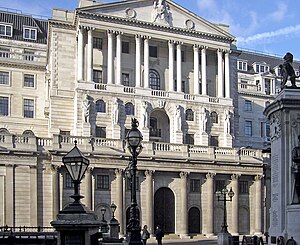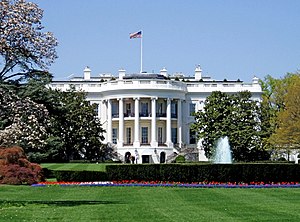
Image via Wikipedia
By BRETT ARENDS
Millions of Americans are now deeply underwater on their mortgage. If you're among them, you need to stop living in a dream world and give serious thought to walking away from the debt.
No, you shouldn't feel bad about it, and you shouldn't feel guilty. The lenders would do the same to you—in a heartbeat. You need to put yourself and your family's finances first.
How widespread is this? More than 11 million families are in "negative equity"—that is, they owe more on their home than it is worth—according to a report out this week by FirstAmerican Core Logic, a real-estate data firm. That's a quarter of all families with mortgages. And for more than five million of those borrowers, the crisis is extreme: They are more than 25% underwater—the equivalent of having a $100,000 loan on a property now worth just $75,000 or less. That's true for a fifth of mortgage holders in California, nearly a third in Florida and an incredible 50% in Nevada.
Are you in this situation? Are you still battling to pay the bills each month, even when it may make little financial sense to do so?
It's time for some tough talk.
Stop trying to chase your lost equity. That money is gone. Don't think like the gambler who blows more and more cash trying to win back his losses. That's how a lot of people turn a small loss into a big one.
When It's OK to Walk Away From Your Home




![Reblog this post [with Zemanta]](http://img.zemanta.com/reblog_a.png?x-id=f7c61883-58f1-4e91-8a33-67ebbe9e6528)
![Reblog this post [with Zemanta]](http://img.zemanta.com/reblog_a.png?x-id=d5e233c8-d929-4c51-ae77-1f7b24915af7)




![Reblog this post [with Zemanta]](http://img.zemanta.com/reblog_a.png?x-id=eed49054-8995-42a9-9132-e19dfc612051)




![Reblog this post [with Zemanta]](http://img.zemanta.com/reblog_a.png?x-id=2f87870c-0d25-4ea4-bcc1-b5d91cd2686c)


![Reblog this post [with Zemanta]](http://img.zemanta.com/reblog_a.png?x-id=299b84b7-0ba0-4221-8489-cd51fee8c1c4)





![Reblog this post [with Zemanta]](http://img.zemanta.com/reblog_a.png?x-id=067b033d-73f1-4bde-80ef-d000454f2c61)


![Reblog this post [with Zemanta]](http://img.zemanta.com/reblog_a.png?x-id=b5aa8eed-ee9d-4970-b2b1-8dd8cd07c538)
